





A Dove campaign that sticks with the status quo and a fashion campaign that’s doing things differently. Find out what we think of both approaches and what other industry news has caught our attention recently.
Dubbed the ‘third big wave of digital advertising’, Retail Media is marketing’s fastest growing channel.
If you’re unfamiliar with the term, retail media is advertising within retail and seller websites and/or apps (like Amazon). Similarly to TV ads, brands can pay to have their products or services listed within retailer sites, giving them extra exposure to an audience already at the point of sale. The rise of e-commerce has seen a steady growth in retail media over recent years, but the loss of third-party cookies has spurred this on even more, with it projected to become a $166 billion industry by 2025.
Already, eMarketer predicts that retail media will account for 20% of all digital media spend this year, with Amazon leading the charge and capturing three-quarters of the retail media market in the US.
The huge potential of this space means that it’s become a priority for many companies, including digital bank Chase who has recently launched Chase Media Solutions. Expedia has also jumped on the hype, introducing its new travel media network at their annual conference. Retail media helps these companies go behind their core business and capitalise on their customer base by offering advertisers rich data and more direct audience targeting.
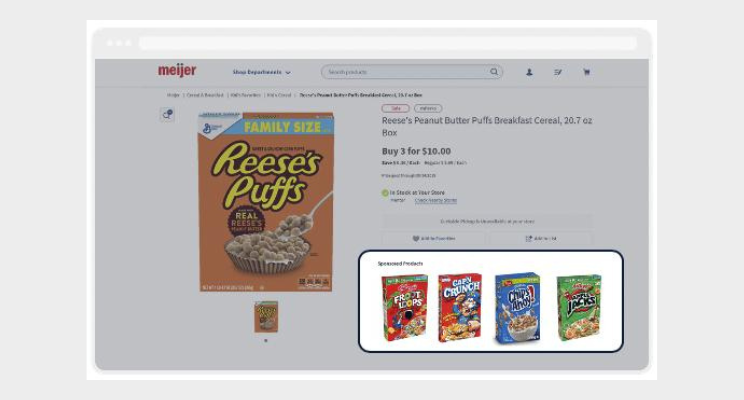
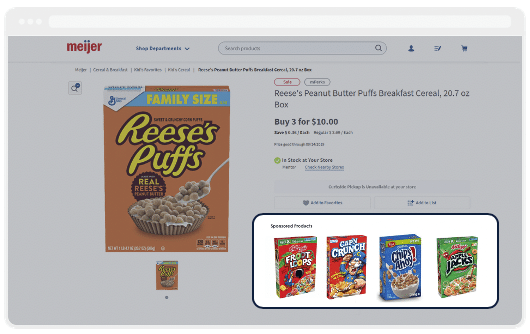
Google launched a new version of their Search Results Page, with top results coming from AI. The Search giant has been teasing this shift, with “zero click search” (users find the answers they are searching for without ever leaving the search results page) being a leading buzzword for the last two years.
According to Google, the retooled search results page will favour responses crafted by AI over website links. The company promises this shift will quicken the search journey for users. This change could cause massive changes for the way people make money from internet advertising. If more users find the AI-powered answers they need on the Search Results Page itself, that could mean fewer users clicking through on website links.
According to reporting from AP, “’Based on habits that emerged during the past year’s testing phase of Google’s AI overviews, about 25% of [website] traffic could be negatively affected by the de-emphasis on website links,’ said Marc McCollum, chief innovation officer at Raptive, which helps about 5,000 website publishers make money from their content.”
But Google isn’t stopping at there. The company plans to inject AI into all of their core offerings, from voice assistants to smartphone cameras.
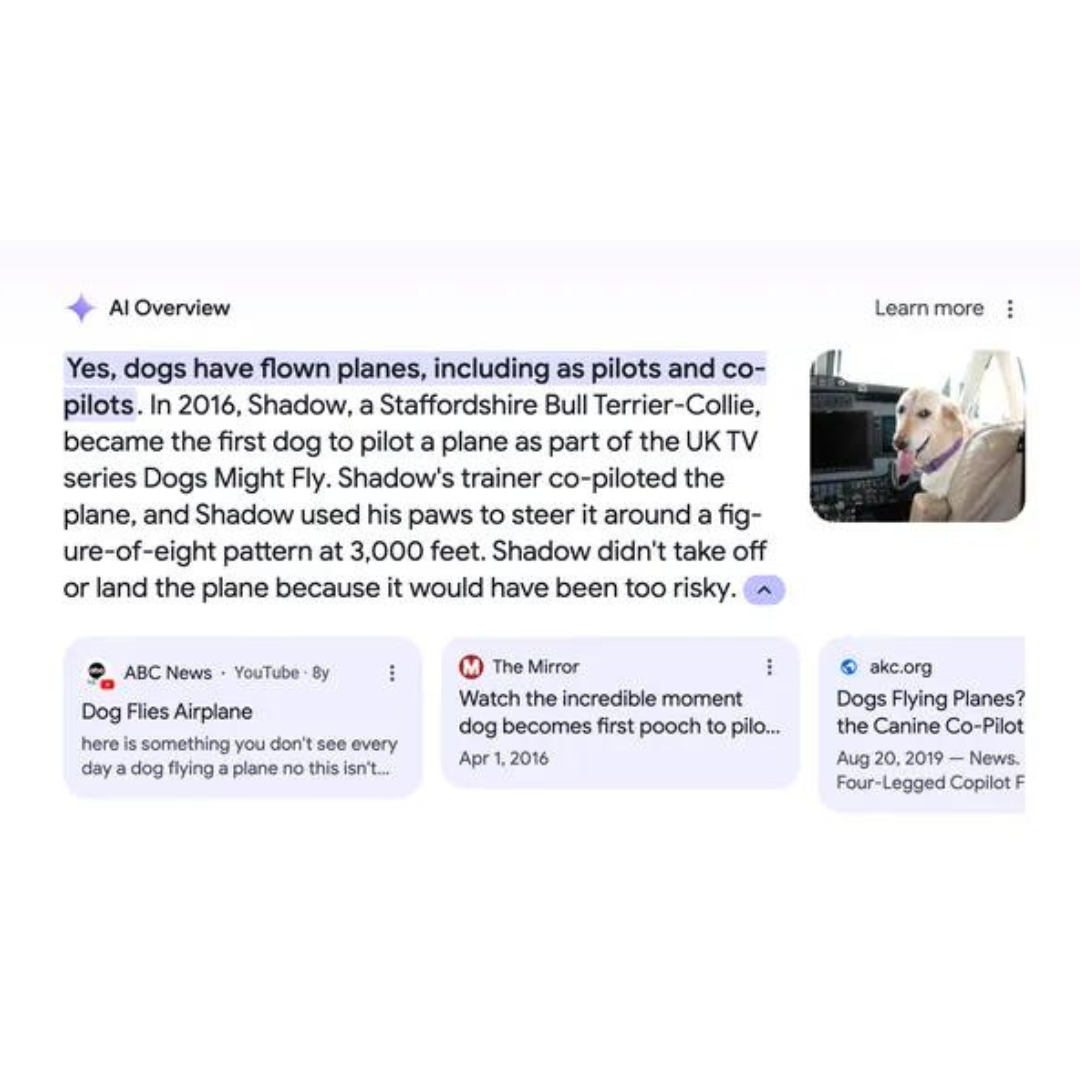
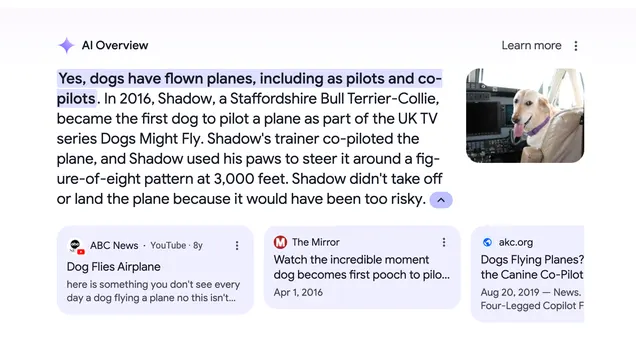
Think of a T-Shirt.
Done it? OK, good.
Now, if it looked like an Asket T-Shirt, then you’ve just proved their recent campaign theory right.
In a radical experiment to test the timelessness of their clothing line, the brand recently removed all images from their communications, instead asking customers to simply picture the pieces instead. A brave concept, and one that the brand was so confident on that they went one step further, removing all imagery from their website and OOH campaigns too.
Buying clothes online without a reference image might seem insane, but Asket’s brand belief paid off, because in the few days that they removed their website images over 1000 pieces were purchased online – a success that the brand says is ‘true testament to their timeless design philosophy’.
In addition to the campaign, Asket has released a limited number of ‘Permanent Lookbooks’ – a book cataloguing their capsule collection with (you guessed it) no product images. The books are exclusively available at the brand’s flagship store in Stockholm, but if you don’t want to travel to not see images of their clothes, you can spot campaign billboards around London (or just carry on with whatever else you were already doing with your day).
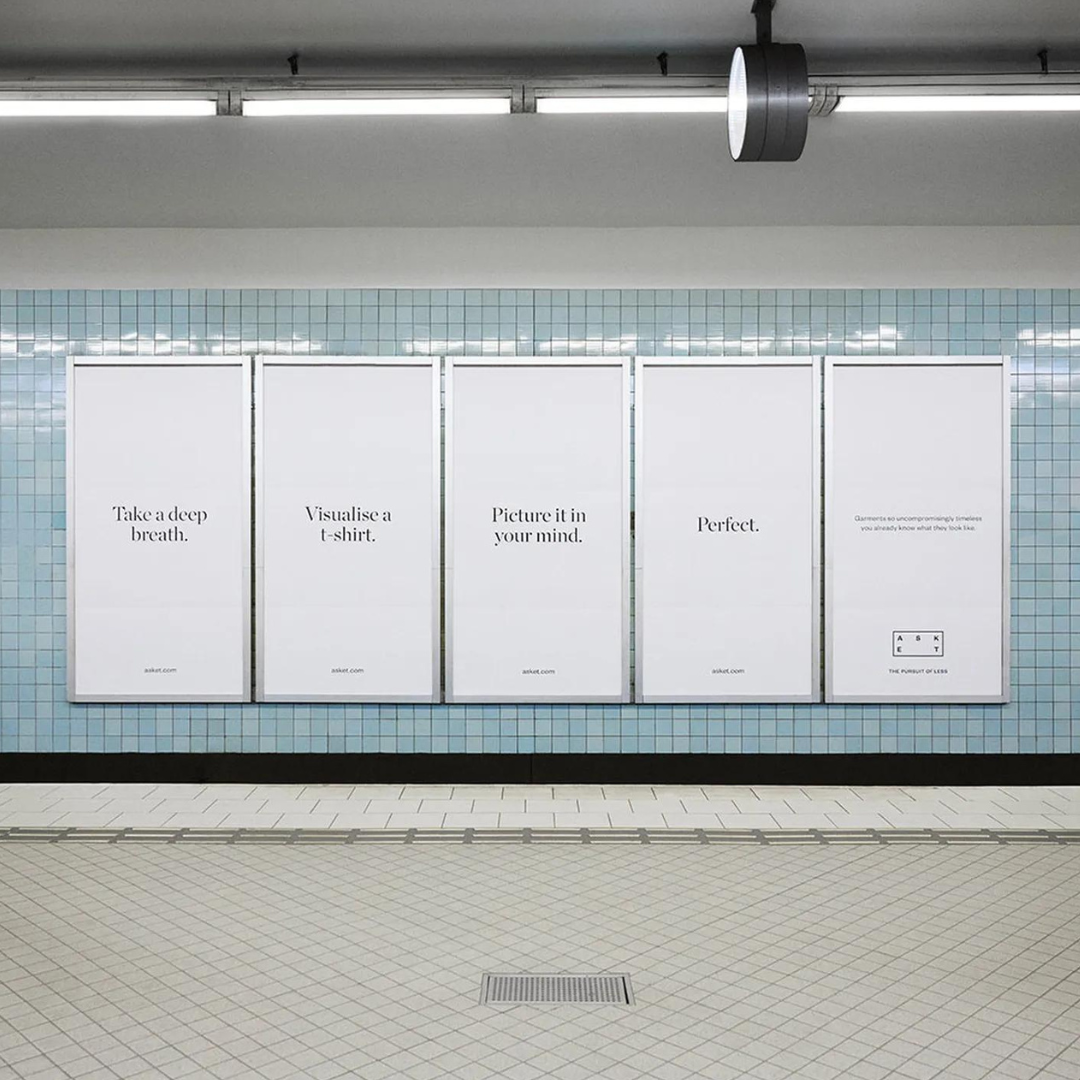
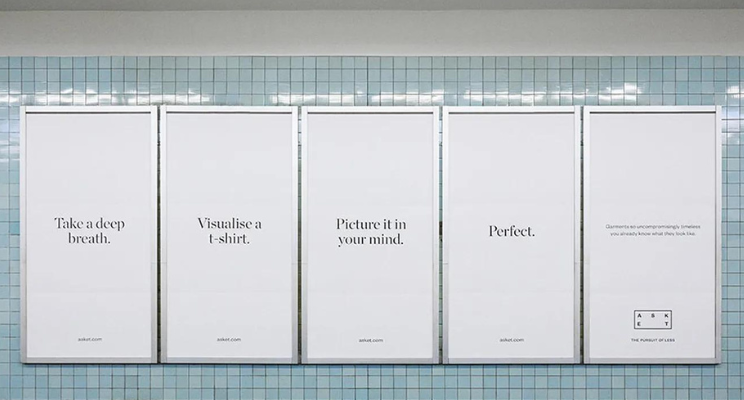
Dove has long been a leader in driving their brand value messaging through their marketing. Their “Campaign for Real Beauty” has been their hallmark advertising and marketing effort for the last twenty years. In their latest instalment, titled “The Code”, they use their signature tagline to take aim at Artificial Intelligence.
Just as they did when Photoshop and social media filters were on the rise, Dove is taking a stand against AI’s coming influence on beauty standards. “Today, as we transition into an era where 90% of content is predicted to be AI-generated by 2025, our message still stands: keep beauty real,” said the brand in their latest campaign.
According to the brand, 1 in 3 women feel pressure to alter their appearance because of what they see online, even when they know the images are fake or AI-generated. The rise of AI poses one of the greatest threats to real beauty in the last 20 years, meaning representation is more important than ever. That’s why Dove is renewing its vow to champion real beauty, with a commitment to never using AI to create or distort women’s images.
We think this campaign is a great example of standing firm in brand values, sharing messages audiences are used to hearing from the brand, while paying attention to the cultural zeitgeist.
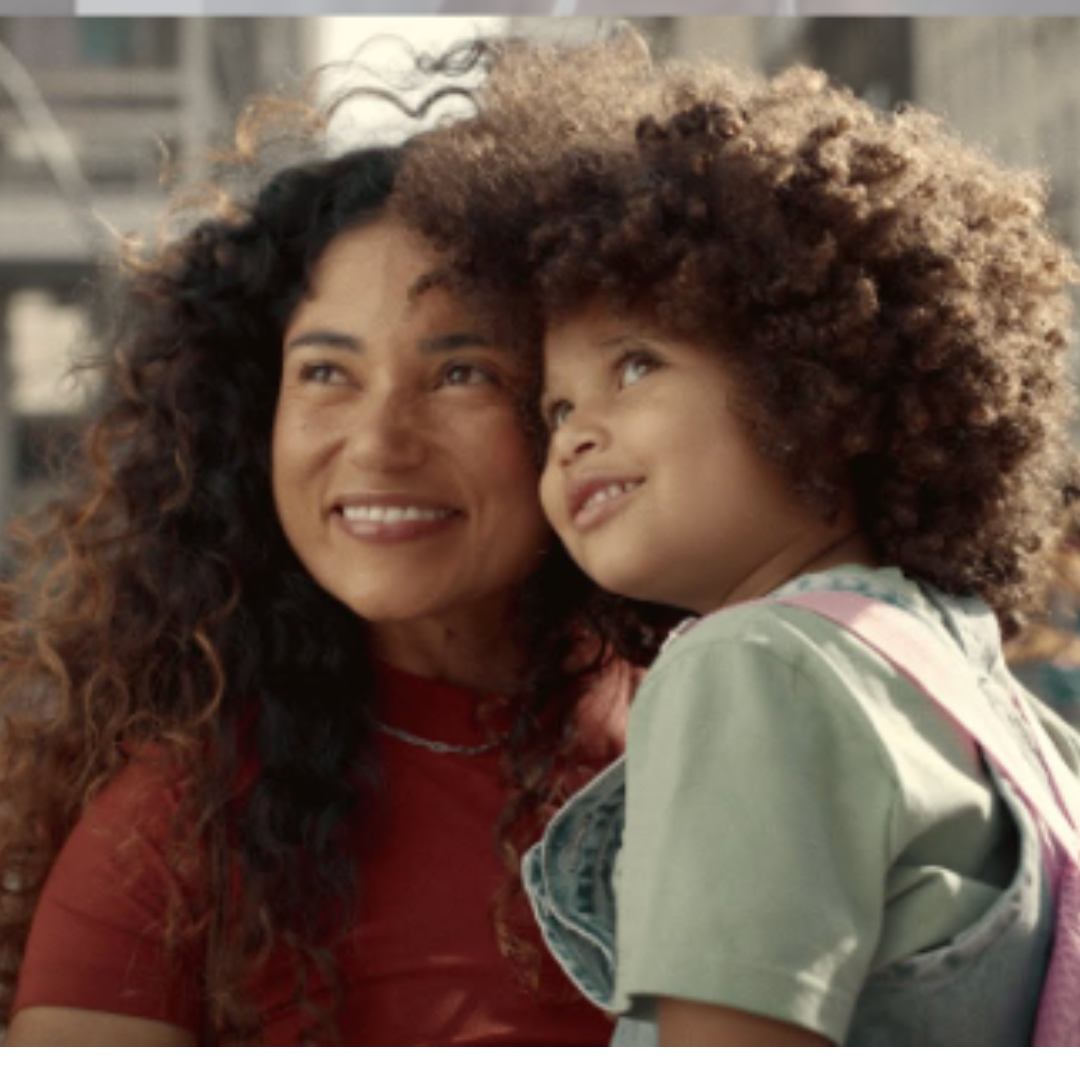
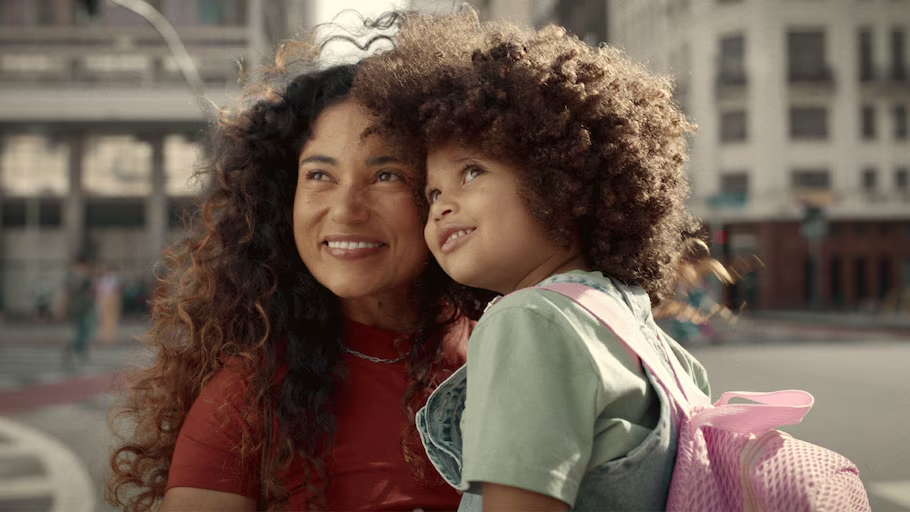
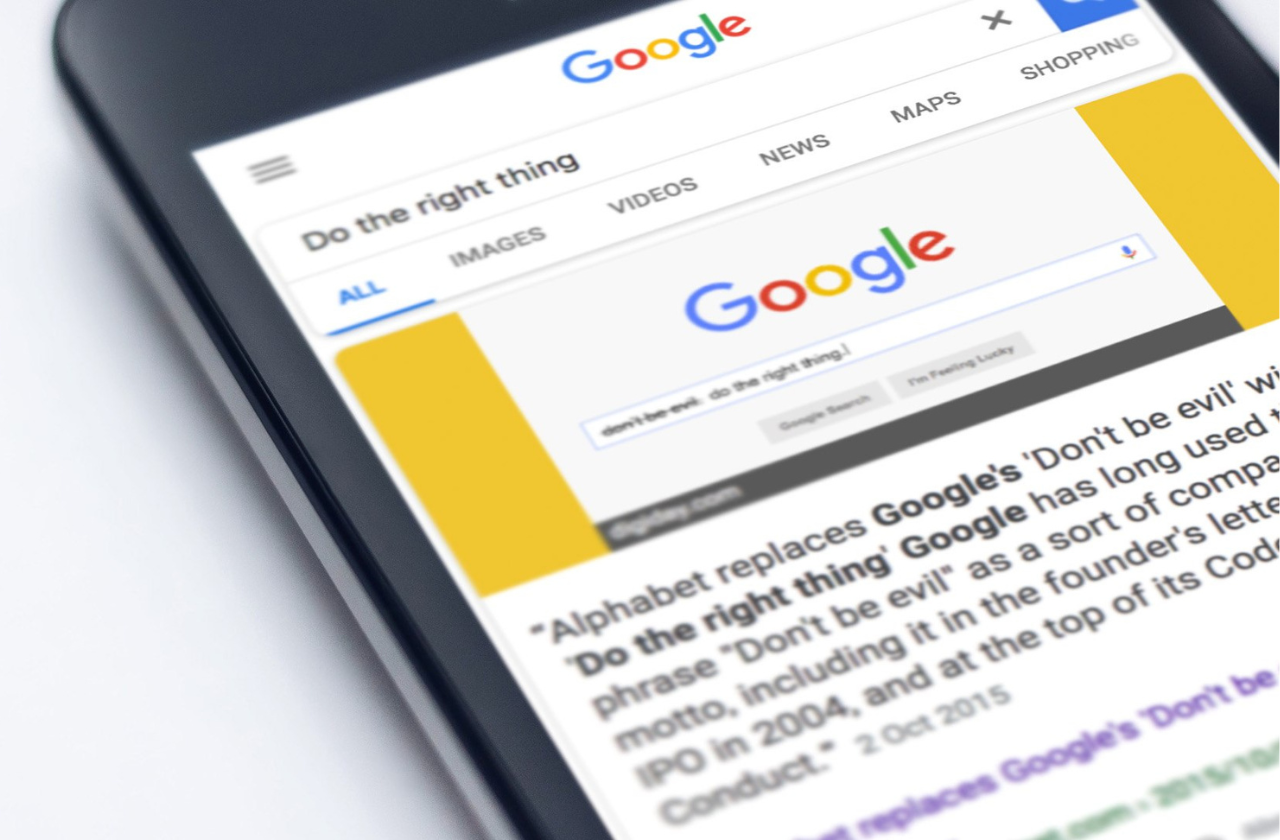

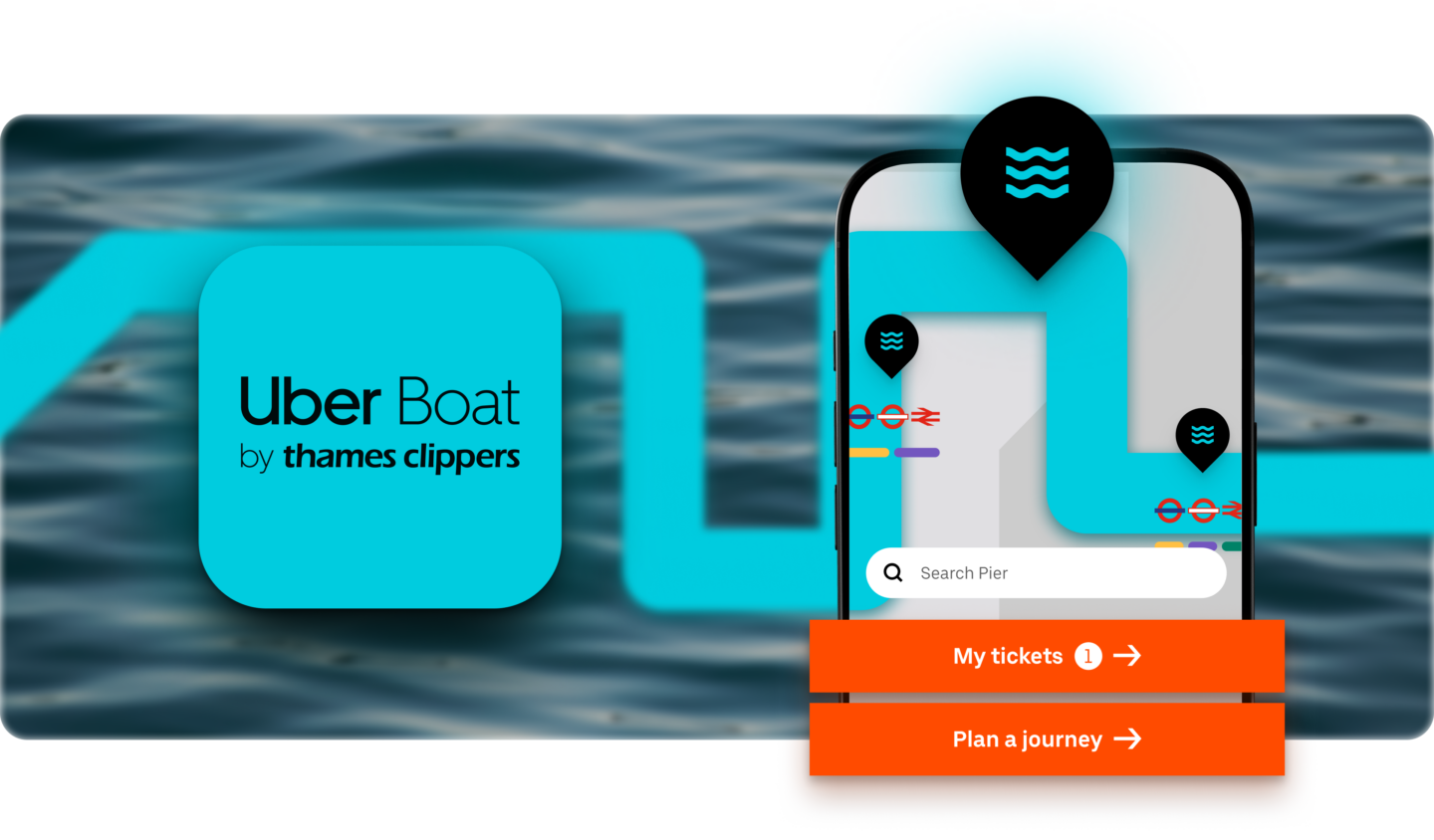
Connected commerce that scales. We design, engineer, and enable seamless ecosystems that connect channels, people, and performance, and convert across every touchpoint.
Learn more